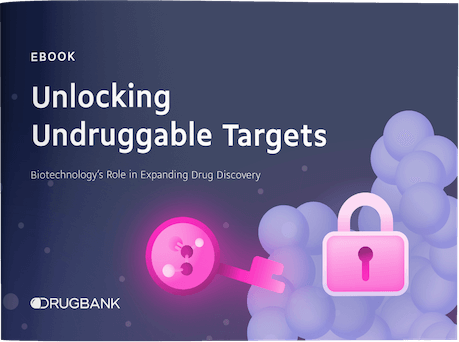Explore a selection of our essential drug information below, or:
Identification
- Generic Name
- {4-[(CARBOXYMETHOXY)CARBONYL]-3,3-DIOXIDO-1-OXONAPHTHO[1,2-D]ISOTHIAZOL-2(1H)-YL}ACETIC ACID
- DrugBank Accession Number
- DB07999
- Background
Not Available
- Type
- Small Molecule
- Groups
- Experimental
- Structure
- Weight
- Average: 393.325
Monoisotopic: 393.015451645 - Chemical Formula
- C16H11NO9S
- Synonyms
- Not Available
Pharmacology
- Indication
Not Available
 Reduce drug development failure ratesBuild, train, & validate machine-learning modelswith evidence-based and structured datasets.Build, train, & validate predictive machine-learning models with structured datasets.
Reduce drug development failure ratesBuild, train, & validate machine-learning modelswith evidence-based and structured datasets.Build, train, & validate predictive machine-learning models with structured datasets.- Contraindications & Blackbox Warnings
 Prevent Adverse Drug Events TodayTap into our Clinical API for life-saving information on contraindications & blackbox warnings, population restrictions, harmful risks, & more.Avoid life-threatening adverse drug events with our Clinical API
Prevent Adverse Drug Events TodayTap into our Clinical API for life-saving information on contraindications & blackbox warnings, population restrictions, harmful risks, & more.Avoid life-threatening adverse drug events with our Clinical API- Pharmacodynamics
Not Available
- Mechanism of action
Target Actions Organism UAldo-keto reductase family 1 member B1 Not Available Humans - Absorption
Not Available
- Volume of distribution
Not Available
- Protein binding
Not Available
- Metabolism
- Not Available
- Route of elimination
Not Available
- Half-life
Not Available
- Clearance
Not Available
- Adverse Effects
 Improve decision support & research outcomesWith structured adverse effects data, including: blackbox warnings, adverse reactions, warning & precautions, & incidence rates. View sample adverse effects data in our new Data Library!Improve decision support & research outcomes with our structured adverse effects data.
Improve decision support & research outcomesWith structured adverse effects data, including: blackbox warnings, adverse reactions, warning & precautions, & incidence rates. View sample adverse effects data in our new Data Library!Improve decision support & research outcomes with our structured adverse effects data.- Toxicity
Not Available
- Pathways
- Not Available
- Pharmacogenomic Effects/ADRs
- Not Available
Interactions
- Drug Interactions
- This information should not be interpreted without the help of a healthcare provider. If you believe you are experiencing an interaction, contact a healthcare provider immediately. The absence of an interaction does not necessarily mean no interactions exist.Not Available
- Food Interactions
- Not Available
Categories
- Drug Categories
- Not Available
- Chemical TaxonomyProvided by Classyfire
- Description
- This compound belongs to the class of organic compounds known as 2-naphthalene sulfonic acids and derivatives. These are organic aromatic compounds that contain a naphthalene moiety that carries a sulfonic acid group (or a derivative thereof) at the 2-position. Naphthalene is a bicyclic compound that is made up of two fused benzene ring.
- Kingdom
- Organic compounds
- Super Class
- Benzenoids
- Class
- Naphthalenes
- Sub Class
- Naphthalene sulfonic acids and derivatives
- Direct Parent
- 2-naphthalene sulfonic acids and derivatives
- Alternative Parents
- 2-naphthalene sulfonamides / Naphthothiazoles / Naphthalenecarboxylic acids / Alpha amino acids and derivatives / Tricarboxylic acids and derivatives / Benzothiazoles / Organosulfonic acids and derivatives / Carboxylic acid esters / Carboxylic acids / Azacyclic compounds show 5 more
- Substituents
- 1,2-benzothiazole / 2-naphthalene sulfonamide / 2-naphthalene sulfonic acid or derivatives / 2-naphthalenecarboxylic acid / 2-naphthalenecarboxylic acid or derivatives / Alpha-amino acid or derivatives / Aromatic heteropolycyclic compound / Azacycle / Carbonyl group / Carboxylic acid show 15 more
- Molecular Framework
- Aromatic heteropolycyclic compounds
- External Descriptors
- dicarboxylic acid, mixed diacylamine, naphthothiazole (CHEBI:43485)
- Affected organisms
- Not Available
Chemical Identifiers
- UNII
- Not Available
- CAS number
- Not Available
- InChI Key
- IXLBOIRSEDMRPI-UHFFFAOYSA-N
- InChI
- InChI=1S/C16H11NO9S/c18-11(19)6-17-15(22)13-9-4-2-1-3-8(9)5-10(14(13)27(17,24)25)16(23)26-7-12(20)21/h1-5H,6-7H2,(H,18,19)(H,20,21)
- IUPAC Name
- 2-[2-(carboxymethyl)-1,3,3-trioxo-1H,2H-3lambda6-naphtho[1,2-d][1,2]thiazole-4-carbonyloxy]acetic acid
- SMILES
- OC(=O)COC(=O)C1=C2C(C(=O)N(CC(O)=O)S2(=O)=O)=C2C=CC=CC2=C1
References
- General References
- Not Available
- External Links
- PDB Entries
- 2nvc
Clinical Trials
- Clinical Trials
Clinical Trial & Rare Diseases Add-on Data Package
Explore 4,000+ rare diseases, orphan drugs & condition pairs, clinical trial why stopped data, & more. Preview package Phase Status Purpose Conditions Count Start Date Why Stopped 100+ additional columns Unlock 175K+ rows when you subscribe.View sample data
Pharmacoeconomics
- Manufacturers
- Not Available
- Packagers
- Not Available
- Dosage Forms
- Not Available
- Prices
- Not Available
- Patents
- Not Available
Properties
- State
- Solid
- Experimental Properties
- Not Available
- Predicted Properties
Property Value Source Water Solubility 0.0925 mg/mL ALOGPS logP 0.69 ALOGPS logP 0.62 Chemaxon logS -3.6 ALOGPS pKa (Strongest Acidic) 2.5 Chemaxon pKa (Strongest Basic) -7 Chemaxon Physiological Charge -2 Chemaxon Hydrogen Acceptor Count 8 Chemaxon Hydrogen Donor Count 2 Chemaxon Polar Surface Area 155.35 Å2 Chemaxon Rotatable Bond Count 6 Chemaxon Refractivity 87.94 m3·mol-1 Chemaxon Polarizability 35.36 Å3 Chemaxon Number of Rings 3 Chemaxon Bioavailability 1 Chemaxon Rule of Five Yes Chemaxon Ghose Filter Yes Chemaxon Veber's Rule No Chemaxon MDDR-like Rule Yes Chemaxon - Predicted ADMET Features
Property Value Probability Human Intestinal Absorption + 0.9881 Blood Brain Barrier + 0.7299 Caco-2 permeable - 0.6654 P-glycoprotein substrate Non-substrate 0.5566 P-glycoprotein inhibitor I Non-inhibitor 0.8096 P-glycoprotein inhibitor II Non-inhibitor 0.8152 Renal organic cation transporter Non-inhibitor 0.8843 CYP450 2C9 substrate Non-substrate 0.563 CYP450 2D6 substrate Non-substrate 0.8157 CYP450 3A4 substrate Non-substrate 0.5794 CYP450 1A2 substrate Non-inhibitor 0.7822 CYP450 2C9 inhibitor Non-inhibitor 0.6472 CYP450 2D6 inhibitor Non-inhibitor 0.8373 CYP450 2C19 inhibitor Non-inhibitor 0.806 CYP450 3A4 inhibitor Non-inhibitor 0.9017 CYP450 inhibitory promiscuity Low CYP Inhibitory Promiscuity 0.8194 Ames test Non AMES toxic 0.5971 Carcinogenicity Non-carcinogens 0.7409 Biodegradation Not ready biodegradable 0.8967 Rat acute toxicity 2.2723 LD50, mol/kg Not applicable hERG inhibition (predictor I) Weak inhibitor 0.996 hERG inhibition (predictor II) Non-inhibitor 0.7874
Spectra
- Mass Spec (NIST)
- Not Available
- Spectra
Spectrum Spectrum Type Splash Key Predicted GC-MS Spectrum - GC-MS Predicted GC-MS splash10-014i-1029000000-bbc25996e0c7e1b27f08 Predicted MS/MS Spectrum - 10V, Positive (Annotated) Predicted LC-MS/MS splash10-0006-0009000000-0a91731e32109fc7785f Predicted MS/MS Spectrum - 10V, Negative (Annotated) Predicted LC-MS/MS splash10-0006-0009000000-e522cafa1ca7ff6f85f7 Predicted MS/MS Spectrum - 20V, Positive (Annotated) Predicted LC-MS/MS splash10-014i-0009000000-246da7463161a2a6cf83 Predicted MS/MS Spectrum - 20V, Negative (Annotated) Predicted LC-MS/MS splash10-0007-0019000000-dc35af0bcee0f9c9b981 Predicted MS/MS Spectrum - 40V, Positive (Annotated) Predicted LC-MS/MS splash10-00di-0090000000-d420d80f2e1a36b9786d Predicted MS/MS Spectrum - 40V, Negative (Annotated) Predicted LC-MS/MS splash10-03dl-5490000000-f0ab2f4749181aee59c7 Predicted 1H NMR Spectrum 1D NMR Not Applicable Predicted 13C NMR Spectrum 1D NMR Not Applicable - Chromatographic Properties
Collision Cross Sections (CCS)
Adduct CCS Value (Å2) Source type Source [M-H]- 180.77528 predictedDeepCCS 1.0 (2019) [M+H]+ 183.13329 predictedDeepCCS 1.0 (2019) [M+Na]+ 190.74275 predictedDeepCCS 1.0 (2019)
Targets

Build, predict & validate machine-learning models
Use our structured and evidence-based datasets to unlock newinsights and accelerate drug research.
Use our structured and evidence-based datasets to unlock new insights and accelerate drug research.
- Kind
- Protein
- Organism
- Humans
- Pharmacological action
- Unknown
- General Function
- Catalyzes the NADPH-dependent reduction of a wide variety of carbonyl-containing compounds to their corresponding alcohols. Displays enzymatic activity towards endogenous metabolites such as aromatic and aliphatic aldehydes, ketones, monosacharides, bile acids and xenobiotics substrates. Key enzyme in the polyol pathway, catalyzes reduction of glucose to sorbitol during hyperglycemia (PubMed:1936586). Reduces steroids and their derivatives and prostaglandins. Displays low enzymatic activity toward all-trans-retinal, 9-cis-retinal, and 13-cis-retinal (PubMed:12732097, PubMed:19010934, PubMed:8343525). Catalyzes the reduction of diverse phospholipid aldehydes such as 1-palmitoyl-2-(5-oxovaleroyl)-sn -glycero-3-phosphoethanolamin (POVPC) and related phospholipid aldehydes that are generated from the oxydation of phosphotidylcholine and phosphatdyleethanolamides (PubMed:17381426). Plays a role in detoxifying dietary and lipid-derived unsaturated carbonyls, such as crotonaldehyde, 4-hydroxynonenal, trans-2-hexenal, trans-2,4-hexadienal and their glutathione-conjugates carbonyls (GS-carbonyls) (PubMed:21329684)
- Specific Function
- aldose reductase (NADPH) activity
- Gene Name
- AKR1B1
- Uniprot ID
- P15121
- Uniprot Name
- Aldo-keto reductase family 1 member B1
- Molecular Weight
- 35853.125 Da
References
- Berman HM, Westbrook J, Feng Z, Gilliland G, Bhat TN, Weissig H, Shindyalov IN, Bourne PE: The Protein Data Bank. Nucleic Acids Res. 2000 Jan 1;28(1):235-42. [Article]
Drug created at September 15, 2010 21:27 / Updated at June 12, 2020 16:52


